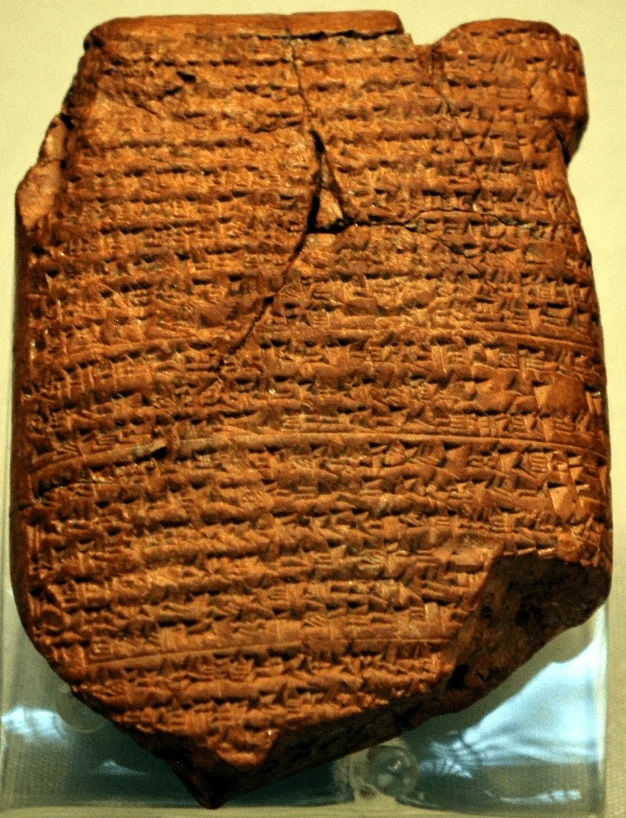
Word of the Day: Peccant
Today’s word of the day, thanks to A.Word.A.Day with Anu Gard, is peccant (https://wordsmith.org/words/today.html). Peccant is an adjective that means “sinning; guilty of a moral offense” or “violating a rule, principle, or established practice; faulty; wrong” (https://www.dictionary.com/browse/peccant). Anu Garg says of pecccant “From Latin peccare (to err). Ultimately from the Indo-European root ped– (foot) which gave us peccadillo (alluding to a stumble or fall), pedal, impeccable, podium, octopus, and impeach. Earliest documented use: 1595.”
The entry continues, “The earliest recorded meaning of the word peccant is unhealthy or diseased. Over time, the term morphed into figurative senses of being sinful or erring. It’s speculated the Latin peccare (to err) arose from pes (foot) meaning having an injured foot or stumbling. Then the stumbling became metaphorical.” So we once again see a broadening in the meaning of a word, though that broadening occurred long before the word entered the English language. We can also see that the word entered the language during that time when scholars were importing a lot of terms from Latin—it’s not as if Early Modern English had no way of expressing the idea of sinning.
On this date in 588 BC, according to On This Day, King Nebuchadnezzar II of Babylon lay siege to Jerusalem, a siege which lasted for two and a half years (https://www.onthisday.com/?utm_source=email&utm_medium=newsletter), though dates from so long ago are always a bit tenuous. The king of Judah at the time was Zedekiah.
At the time of the siege, Judah was under the thumb of Babylon, which was ruled by Nebuchadnezzar. The history here is a bit complicated. It is a time when the neo-Babylonian Empire was asserting its power and the neo-Assyrian Empire was in decline. The Egyptians were on the sidelines, to some extent, having taken the side of the Assyrians, but unsuccessfully. Judah was in the middle of all this.
So at one point the Egyptians, passing through Judah after losing in their effort to help the Assyrians, take control of Judah and take its king hostage, placing a different king on the throne. The Jews pay tribute to the Egyptians for a few years. Then, the Babylonians set siege to Judah and take over. The king of Judah dies during the siege, so the Assyrians put a new king on the throne. But after a certain amount of time, the king of Judah decides to stop paying tribute to the Assyrians and start paying tribute to, with the hope of protection from, the Egyptians.
In 597, the Assyrians placed Zedekiah on the throne of Judah, and for a few years, things went along okay. But in the ninth year of Zedekiah’s reign, against the advice of Jeremiah and pretty much everyone else in Judah, Zedekiah decided to try the whole “let’s ally ourselves with Egypt” thing again. The last sentence of the 24th chapter of 2 Kings is, “Now Zedekiah rebelled against the Babylonian king.”
Then in chapter 25, this is what it says:
1So in the ninth year of Zedekiah’s reign, on the tenth day of the tenth month, Nebuchadnezzar king of Babylon marched against Jerusalem with his whole army. He encamped outside the city and built siege works all around it. 2The city was kept under siege until the eleventh year of King Zedekiah.
3By the ninth day of the fourth month the famine in the city had become so severe that there was no food for the people to eat. 4Then the city wall was broken through, and the whole army fled at night through the gate between the two walls near the king’s garden, though the Babylonians were surrounding the city. They fled toward the Arabah, 5but the Babylonian army pursued the king and overtook him in the plains of Jericho. All his soldiers were separated from him and scattered, 6and he was captured.
He was taken to the king of Babylon at Riblah, where sentence was pronounced on him. 7They killed the sons of Zedekiah before his eyes. Then they put out his eyes, bound him with bronze shackles and took him to Babylon.
It was a pretty severe punishment, perhaps worse than being killed. I can’t really say that I think very highly of Nebuhadnezzar. But here’s one of the things that really gets me about this little section of 2 Kings. At the end of chapter 23, the book says this about King Jehoiakim: “He did what was evil in the Lord’s eyes, just as all his ancestors had done.” This is what is said about King Jehoiachin in chapter 24: “He did what was evil in the Lord’s eyes, just as all his ancestors had done.” Later in chapter 24, we find this about Zedekiah: “He did what was evil in the Lord’s eyes, just as Jehoiakim had done.”
Now, I recognize the possibility that such wording in ancient texts could be the result of an oral-formulaic tradition, developed by Milman Parry and Albert Lord (see Lord, Albert, The Singer of Tales [Center for Hellenic Studies; 3rd edition (April 2, 2019)]). But it sure is interesting that all the kings of Judah are described as having done evil in the eyes of the Lord, especially in light of 1 Samuel 8, which describes the end of the period of the judges, when the Jews decided that they wanted a “king to judge us as all the other nations have.”
Personally, I think it is a fundamental, inherent quality of kings and queens that they are peccant. But maybe that is just me.
By the way, the events recorded in 2 Kings are corroborated by Babylonian records. The image today is of a clay table with cuneiform writing that is part of the Babylonian Chronicles, specifically the “Nebuchadnezzar Chronicle” (https://drivethruhistory.com/neo-babylonian-jerusalem-chronicle/).